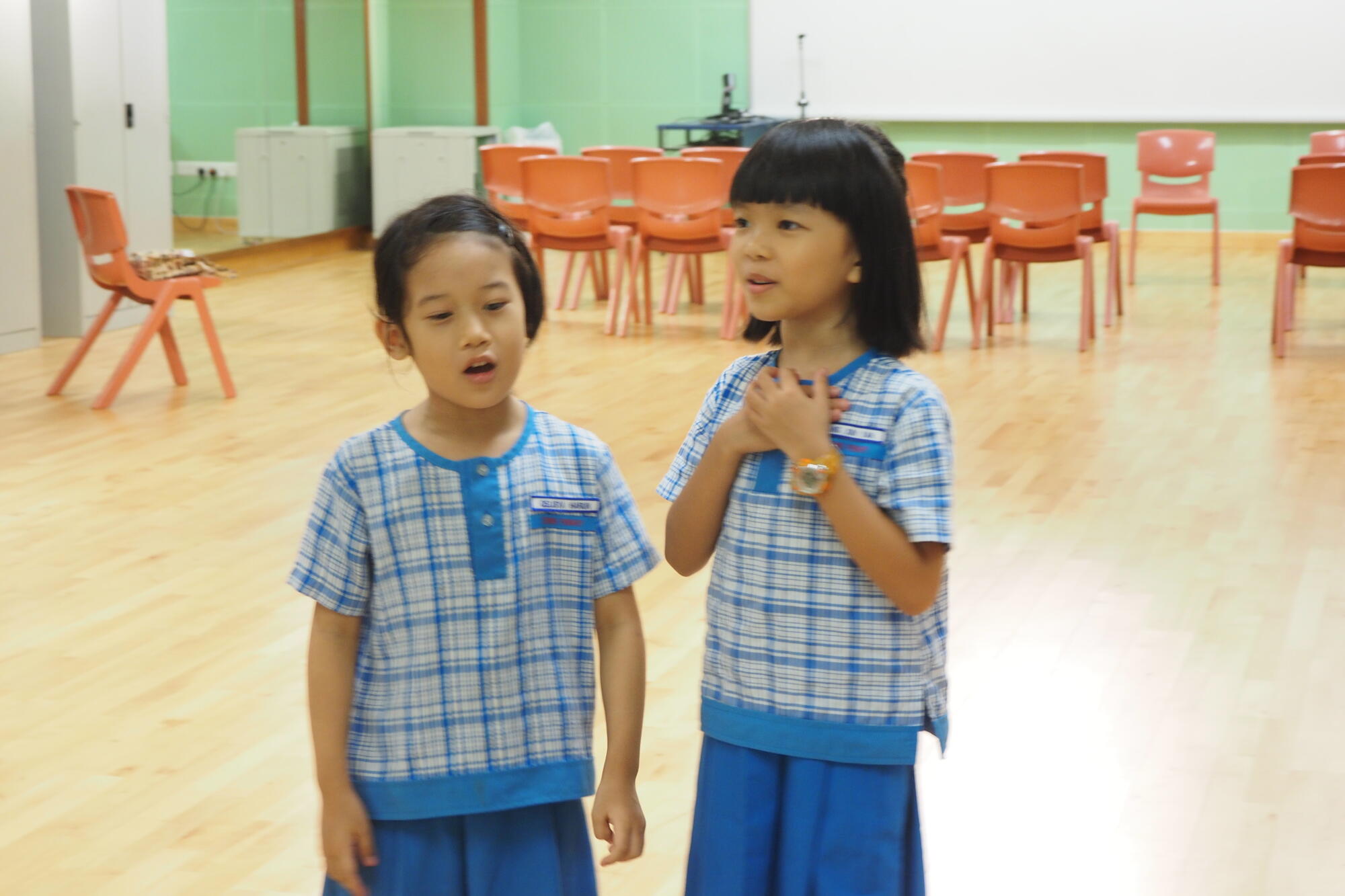“Help, help, there is a monster in my room! What should I do? Run!”
Primary One students in Jiemin Primary School recited the sentence in unison as part of their choral reading programme during English lesson. They expressed the emotion of fear by throwing their hands over their eyes as they ran off squealing in excitement.
Choral reading is an interpretive reading of a text in a poem or short story. Students may read individual lines alone, in pairs or in unison, and it helps develop the oral reading skills of younger students. Through this, students also get to explore different tones, emotions and actions of characters they are adopting.
“English lessons is so fun because I get to read and act,” shared Huang Zixuan, a Primary One student who also opined that her favourite part of the lesson was acting out the puppy character in the choral recitation as she loves puppies.
To impart skills such as reading, speaking and writing in their students, Jiemin Primary School’s Applied Learning Programme incorporates practical and interesting activities such as choral reading, poetry recitation, film appreciation and journalism.
“We don’t see the benefits immediately, especially in the lower-primary students. However, there are definitely improvements. Some students was very afraid of public speaking but after the entire series of choral reading, they are more self-assured. Some are using the phrases they picked up in the books for everyday conversation, others improved in their focusing and attention span as they need to memorise a character’s lines, and many students conquered their fear of standing in front of an audience. In whichever way it has slowly benefitted them, at the of each level program, it is definitely a big achievement for all of them,’ opined Ms Chia Li Ling, the class’s English teacher who has been teaching English to lower-primary students for over 10 years and loves every minute of it.
As students progress through the levels, the programme evolves and further enhances the reading, writing and speaking abilities of students. For example, Primary Four students take up the storyboarding module as part of the Journalism programme. These students get to practice public speaking on public platforms such as reciting poems and sharing their thoughts on international affairs at the school’s ‘Speaker’s Corner’ during recess.
“We hope to build confident speakers and learners of the language through engaging and interesting programmes customised to suit the needs of each student as every child is different,’ said Mrs Shoba Michael-Cummar, the Subject Head of the English Language Department.






